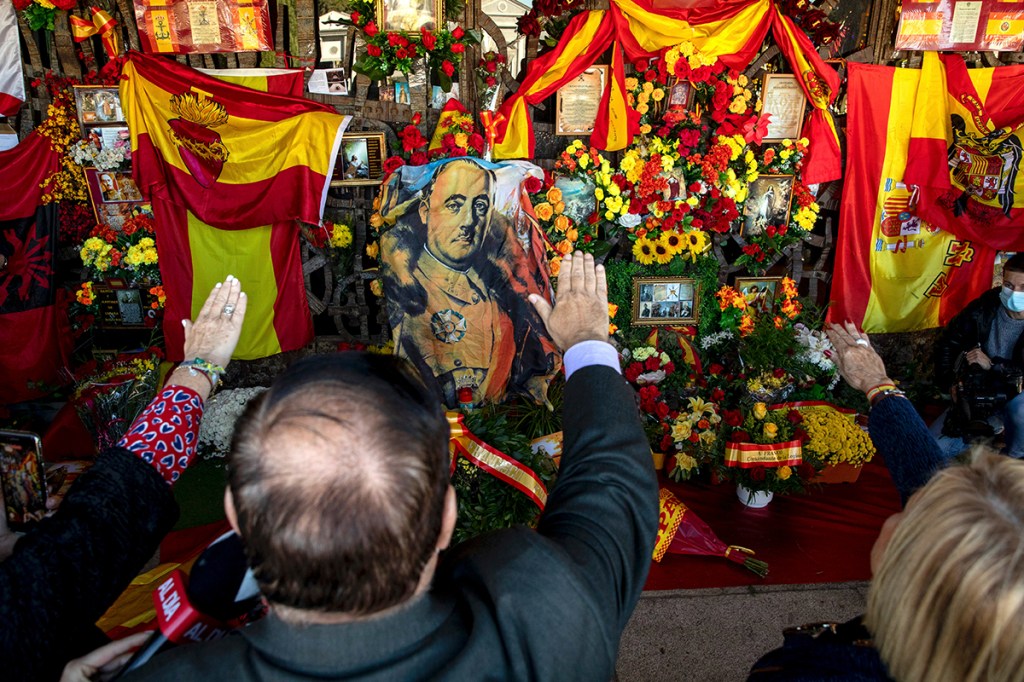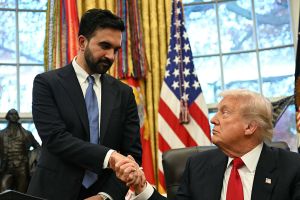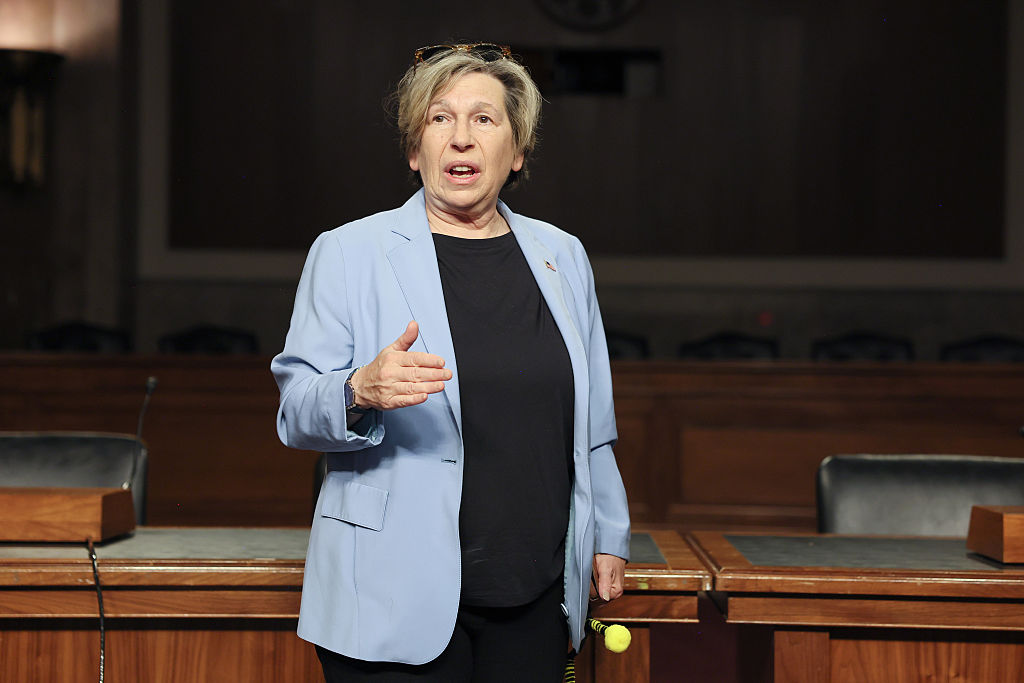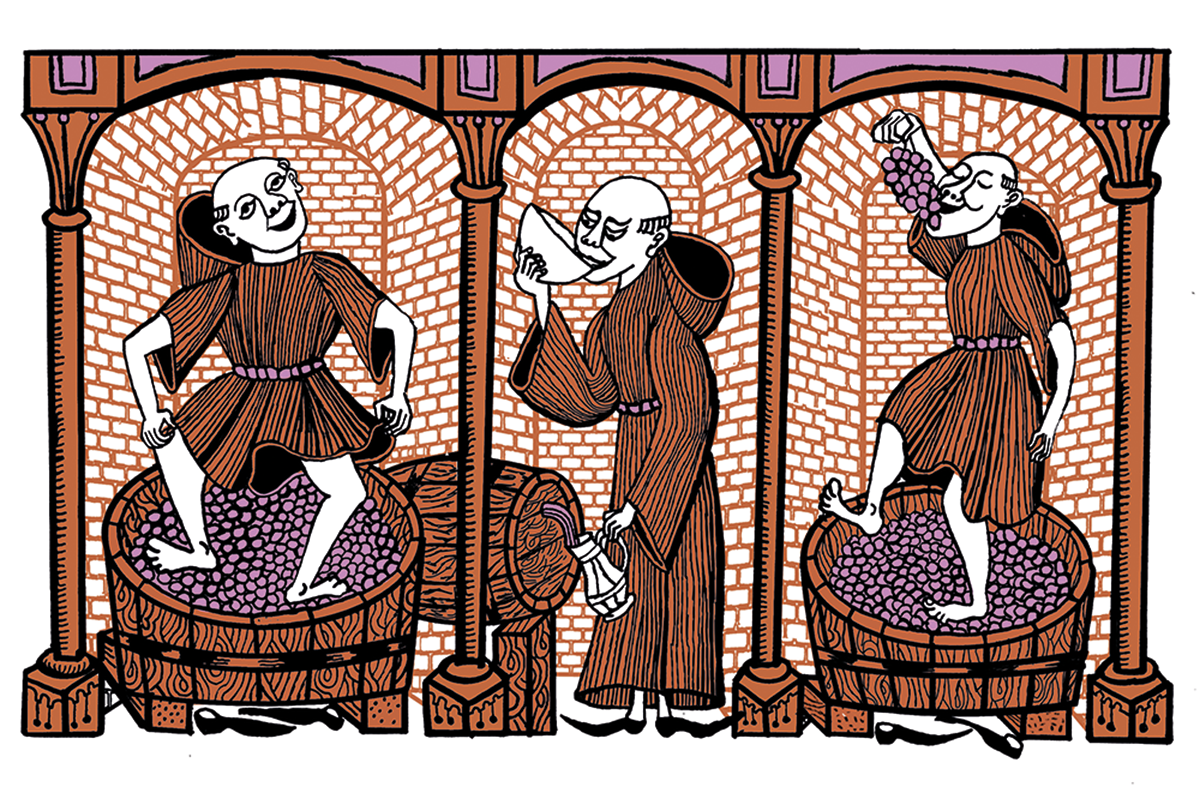There are hundreds of mass graves dotted around the Spanish countryside. In roadside ditches, down hillside gullies, dumped in pits and down disused wells lie thousands of bodies: civilians murdered in cold blood by Franco’s death squads during the civil war that convulsed Spain between 1936 and 1939.
Over the nearly 40 years of Franco’s dictatorship, few spoke of what had happened during the war; silence and selective amnesia were safer. And even when Franco died in 1975, the overriding priority was the transition to democracy. The old Francoist establishment indicated that it would make way for the new era — provided that there was no digging up of the past and no reprisals.
Spaniards were happy to look to the future. People who had always been taught that the dictatorship had saved Spain were now being told that in fact democracy was needed; instead of trying to believe two contradictory things at the same time, many found it easier just to forget the past. So rather than ‘forgive and forget’, Spain’s transition to democracy became simply a case of ‘forget’.
After Franco’s death, this pragmatic ‘pact of forgetting’ enabled the country to move quickly to democracy and then towards the holy grail of EU membership. For Spain, like other European countries with shameful 20th-century histories, joining the EU seemed the best way to escape the past.
While being careful not to mention the war, the left felt morally superior, regarding itself as the heir of the democratically elected government that Franco had overthrown. Meanwhile many on the right still felt that Franco’s military insurrection was justified and his victory was not such a bad thing.
Signs that the unwritten ‘pact of forgetting’ might crumble started to appear when, for the first time, the right-wing Partido Popular came to power in 1996. Since the Partido Popular’s founder and honorary president had been a minister under Franco, it was tempting for the left to embarrass the government by bringing up the civil war and the ensuing dictatorship. Descendants of victims meanwhile were beginning to agitate for the right to find and identify bodies and to give them a proper burial.
Since then the left, when in power, has renamed streets and taken down statues celebrating the dictator’s legacy. In 2007 it passed a law authorizing state financing for the exhumation of the mass graves. In 2019 Franco’s body was removed from its resting place of honor in the Valley of the Fallen.
Meanwhile the conservative Partido Popular and Vox, the most right-wing party on the country’s political spectrum, have suggested that the left shares some of the blame for the civil war and was certainly also guilty of horrific atrocities. They bitterly criticized the reburial of Franco and have warned repeatedly of the dangers of reopening old wounds. When it got the chance the Partido Popular defunded the 2007 law.
Now the right is outraged that Prime Minister Pedro Sánchez’s minority left-wing government has drafted a new law that will make the recovery of bodies from mass graves a government responsibility, not just a right for relatives. The law aims to accelerate the exhumations and establish a database of victims’ DNA.
One of the draft law’s most controversial provisions concerns the teaching of the civil war period in schools. Thanks in part to the ‘pact of forgetting’ there is still widespread ignorance about what actually happened during the 1930s. There is no consensus at all among Spaniards about the rights and wrongs of the conflict. Careful study of the period might prove enlightening for both sides, but in practice there is little prospect of left and right reaching agreement about what school children should learn about the civil war and Franco’s dictatorship. The Spanish people have many fine qualities but on the whole it’s probably fair to say that the ability to listen with an open mind to an opposing point of view is not the first that springs to mind.
Over recent months politics has been poisoned by increasingly frequent references to the civil war, the trading of insults alluding to the past and a tendency to describe opponents as ‘communists’ and ‘fascists’. Now such bad-tempered exchanges are likely to increase, driving many Spaniards who don’t care about the new law into the arms of the right who are already denouncing it as a divisive distraction. They have promised to repeal the new law if they win power in the next general election.
Exhuming relatives’ bodies from those mass graves brings closure to families, but when will Spain face up to its history, accept its painful lessons and finally bury the trauma of the civil war?
This article was originally published on The Spectator’s UK website.

























